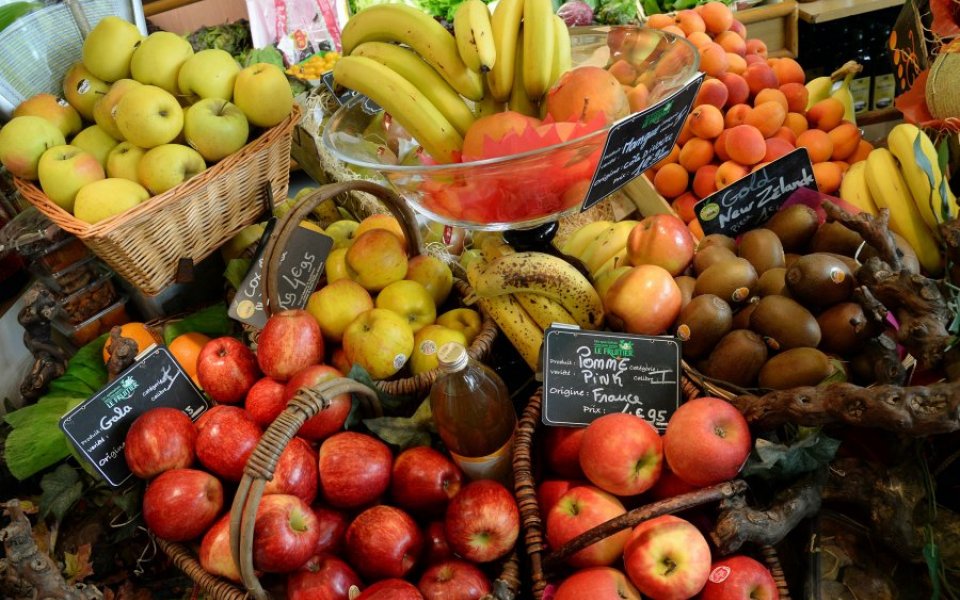10 tips for healthy eating in the New Year

Feeling the bloat of a heavy Christmas, you'd be forgiven for ranting about how your New Year's resolution is to cut back on excesses and have a healthier 2016.
Read more: Eating lunch at your desk again? Here's how the City does delivery
So we've done a bit of research, drawing on sources including prominent food bloggers, the NHS and Weight Watchers to give you some simple tips on how to make this pledge to yourself a reality.
Get as much of your nutrition as possible from a variety of completely unprocessed foods.
It’s recommended that we eat at least five portions of different types of fruit and veg a day.
Don't be put off, it’s easier than it sounds. A glass of unsweetened 100 per cent fruit juice can count as one portion, and vegetables cooked into dishes also count.
But you also want to get your nutrients from meat, fish, poultry and eggs that haven't been processed. That is, when buying food, look for items that haven't been been cooked, prepared or altered in any way.
Eat as much home-cooked food as possible
By cooking your own food you are able to avoid processed ingredients more easily. Processed foods typically have more calories and salt, not ideal for healthy living.
Some of these foods typically include bread, crisps, cookies, processed meats and ready meals.
Watch the salt
No surprises here: eating excessive salt can increase blood pressure.
And even if you don’t add salt to your food, you may still be eating too much. About three-quarters of the salt we eat is already in the food we buy, such as breakfast cereals, soups, breads and sauces. So watch out for those processed foods.
Cut back on saturated fats and sugar
While you need a little fat in your diet, it's no secret that too much saturated fat can increase the amount of cholesterol in the blood, which increases your risk of developing heart disease. Saturated fat is found in many foods, such as hard cheese, cakes, biscuits, sausages, cream, butter, lard and pies.
Opt instead for unsaturated fats, such as vegetable oils, oily fish and avocados.
And cut down on sugary fizzy drinks, alcoholic drinks, sugary breakfast cereals, cakes, biscuits and pastries, which contain added sugar.
A typical guide is that more than 22.5g of total sugars per 100g means that the food is high in sugar, while 5g of total sugars or less per 100g means that the food is low in sugar.
Eat More Vegetarian Meals
Plant foods are low in calories and saturated fats. They are also often rich in fibre and protein.
Try substituting meat in meals, and make vegetable soups, stir-fries, pasta dishes, and salads.
When you do eat meat, try to look for the leanest meat avaiable.
Keep yourself hydrated
We need to drink between 1.6 and 2 litres of fluid daily to stop us getting dehydrated. While all non-alcoholic drinks count, water and low-fat milk are healthier choices.
Read more: Drinking wine can keep your brain 7.5 years younger
Of course, try to avoid sugary soft and fizzy drinks that are high in sugars and calories (not to mention bad for your teeth).
Some alcohol and coffee can be consumed in moderation as part of a healthy lifestyle.
Eating out
This one can be difficult, but its important to try and follow the same rules when you eat out as when you're preparing food at home.
You're not always going to be able to eat completely unprocessed foods, but you can still try to pick out dishes that are more nutritional.
Eat with other people as often as possible
This will make you more likely to cook up a nutritious meal, but is also said to make you eat more slowly and gorge less.
Typically, you should take your time eating.
Don’t skip breakfast
It may seem like skipping a meal will result in consuming less calories, but research shows that eating breakfast can help people control their weight.
That doesn't mean eating a full English, mind. It's still important to eat a healthy breakfast part of a balanced diet, which provides some of the vitamins and minerals we need for good health.
Get active
Sorry, guys. This one's not directly food related, but if you really want to life a healthy lifestyle in 2016, try combining the dietary advice with some physical activity.
This doesn't have to mean slogging it to the gym daily (which, of course, would bring benefits), but can just mean making small changes to your daily activities. For example, try getting off the bus one stop early on the way home from work, and walking.
Try not to reward yourself too much for this. You'll still need to eat heathily.